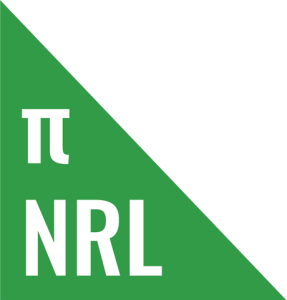The Greeks is the collective name given to a series of Elo rating models for tracking performance of rugby league teams and forecasting the outcomes of games. I usually refer to them as if the philosopher himself was making the prediction, even though the Greeks have mostly been dead for a couple thousand years and certainly would never have heard of rugby league or Arpad Elo.
The differences between each Greek are on the subtle side, with the intention of measuring different things. You may want to revisit primers from last year:
National Rugby League models
 Archimedes
Archimedes
What did you do when you were alive? Lots of stuff. Most people remember me for running around naked, screaming “Eureka”. I also invented the screw named after me and a death ray.
What does your eponymous system do now? I measure the short term performance, or “form”, of NRL clubs using Elo ratings. My ratings are the input for the Stocky, which is used to forecast season outcomes, and typically represent performance over the last three to eight games. I am generally not too bad at tipping and setting a line as far as Elo rugby league models go.
What are your variables like? I have become a margin based system, meaning that ratings only go up for the winner if they win by more than I expected. It makes for better tipping and forecasting. My K values have been slowed to move at a medium pace so as not to overreact to individual results, a problem I had last year, and start high and become smaller as the season wears on. The home ground advantage is based on team’s actual home record with better teams getting a slightly higher advantage. The margin prediction factor is based on all previous seasons of data. Between seasons, teams’ end of regular season ratings are reverted 60% back to the mean for the opening round.
How accurate are you? From 2003 to the end of 2017, I tipped an average of 61.7% with 11.8 bits per season with an overall Brier score of 0.23. I could be optimised to produce a 62+% tipping rate but the extra two or three tips per year would be down to noise, rather than my expertise.
 Eratosthenes
Eratosthenes
What did you do when you were alive? I was a librarian and calculated the circumference of the Earth (because even then, we knew the world is round).
What does your eponymous system do now? I measure the long term performance, or “class”, of NRL clubs using Elo ratings. It’s a good gauge for deciding what teams are generally considered good or bad, irrespective of their recent results. I break teams into five groups:
- A for teams rated over 1600
- B for 1550 to 1600
- C for 1550 to 1450
- D for 1450 to 1400
- E for less than 1400
From my perspective, there isn’t a huge difference between a team rated 1550 and one rated 1570 but it is useful to catalogue teams broadly.
What are your variables like? I am a simple system and pretty much the same as last year. I use a winner-takes-all approach, i.e. winner’s ratings always go up, inversely proportional to the likelihood of the win. Ratings continue from season to season without reversion to mean. My K values are low, which means the ratings are roughly equivalent to the teams’ win rates over three years. My homeground advantage is the rating equivalent of the percentage of home wins since the NRL began.
How accurate are you? It’s not that important to me but my prediction percentage is 59.1% since 1998 and 10.1 bits per season. I have a slightly lower Brier score than Archimedes and outperformed him in tipping in 2017, 62.2% to 58.7%.
Intrust Super Cup models
The models for the Intrust Super Cup – or Queensland Cup – are almost identical to the NRL equivalents. The games have been replaced with the relevant fixtures but the systems only date back to the start of the 2012 season due to the difficulty of finding the results for earlier seasons.
 Euclid
Euclid
What did you do when you were alive? I invented geometry.
What does your eponymous system do now? I track the short term performance, or “form”, of Intrust Super (Queensland) Cup teams.
What are your variables like? Much the same as Archimedes. The variables will be tuned as more data is available for this level of competition.
How accurate are you? In 2017, my only predictive season to date, I generated 12.9 bits for 61.1% accuracy rate.
 Hipparchus
Hipparchus
What did you do when you were alive? Trigonometry, something to do with equinoxes.
What does your eponymous system do now? I track the long term performance, or “class”, of Intrust Super (Queensland) Cup teams.
What are your variables like? Much the same as Eratosthenes.
How accurate are you? It’s not the point but from 2012 to 2017, I averaged 63.2% tipping and 12.9 bits per season.
Not an Elo model
Pythagorean expectations are not an Elo rating-based model but rather another useful Greek (read: mathematical tool).
 Pythagoras
Pythagoras
What did you do when you were alive? I worked out how right angled triangles work. I also ran a cult on the side.
What does your eponymous system do now? I forecast how many wins a team will get based on their for and against record using Pythagorean expectations.
Which competition are you interested in? I originated in baseball but can be applied to just about any head-to-head sport.
How accurate are you? My win predictions are out by about 5-6% by the end of the season. By the end of 2017, I was out by 1.5 games or 6.25% on average. It’s up to you to decide whether an over-/under-performance compared to my expectations is down to luck or talent.

